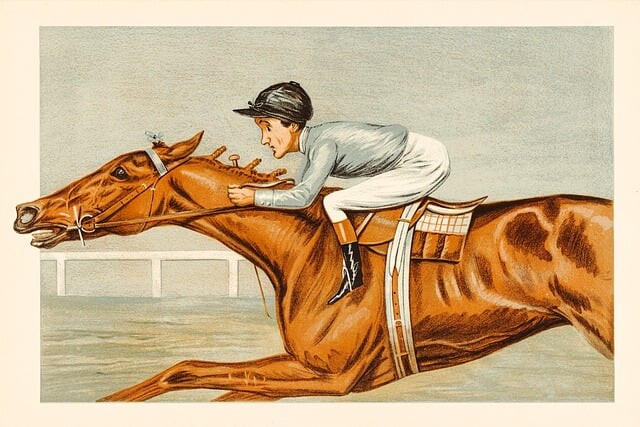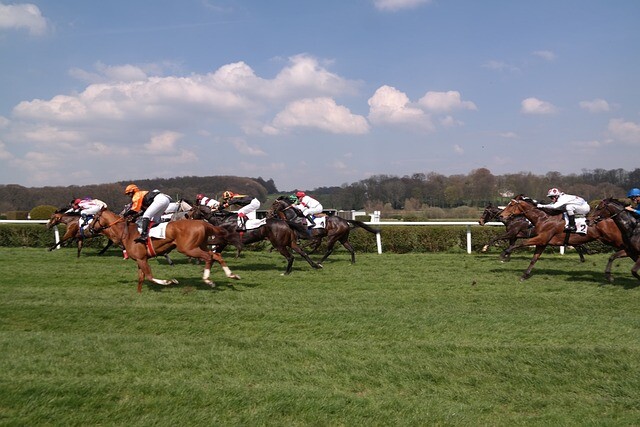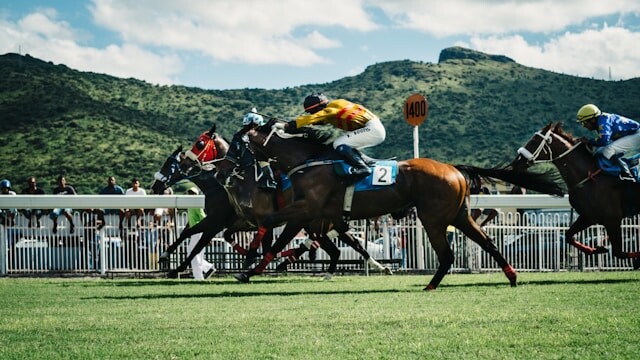 Without wishing to rain on anyone’s parade, perhaps the first points to make are that trainee jockeys need to be between 16 and 25 years of age, physically fit and be able to ride between 8st 2lb and 10st 2lb, on the Flat, or between 10st 2lb and 12st, over jumps. Those caveats aside, the first step to becoming a jockey is to complete a Level 1 Diploma in Racehorse Care at the British Racing School (BRS) in Newmarket or the National Horseracing College (NHC) in Doncaster. You will need to demonstrate your fitness beforehand, but no previous riding experience is required. It is worth noting, though, that courses are heavily over-subscribed and, according to the BRS, less than 5% of attendees go on to become jockeys.
Without wishing to rain on anyone’s parade, perhaps the first points to make are that trainee jockeys need to be between 16 and 25 years of age, physically fit and be able to ride between 8st 2lb and 10st 2lb, on the Flat, or between 10st 2lb and 12st, over jumps. Those caveats aside, the first step to becoming a jockey is to complete a Level 1 Diploma in Racehorse Care at the British Racing School (BRS) in Newmarket or the National Horseracing College (NHC) in Doncaster. You will need to demonstrate your fitness beforehand, but no previous riding experience is required. It is worth noting, though, that courses are heavily over-subscribed and, according to the BRS, less than 5% of attendees go on to become jockeys.
The next step is to find full-time employment, as a racing groom, with a licensed racehorse trainer. There are around 600 licensed trainers in Britain and both the BRS and NHC have dependable connections with various yards up and down the country, so should be able to point you in the right direction. Once employed by a trainer, you will be required to continue your training and complete a Level 2 Apprenticeship Equine Groom, which covers the basic skills required for a successful career in the racing industry.
Ultimately, the trainer will decide if and when you are competent enough to become a jockey and make a licence application to the British Horseracing Authority (BHA). Once you have successfully completed a two-week Jockey Licence course, you will be eligible to ride against professional jockeys, with an appropriate weight allowance.
 Run over three miles at Kempton Park, the King George VI Chase was inaugurated in February 1937 and named in honour of the new monarch, King George VI, who ascended the throne following the abdication of his brother, Edward VIII, the previous December. However, the King George VI Chase has been the Boxing Day highlight at the Sunbury-on-Thames course since 1947. Its roll of honour includes the likes of Arkle, Kauto Star, Mill House, Burrough Hill Lad and Long Run, all of whom feature in the top-ten highest-rated steeplechasers of the Timeform era.
Run over three miles at Kempton Park, the King George VI Chase was inaugurated in February 1937 and named in honour of the new monarch, King George VI, who ascended the throne following the abdication of his brother, Edward VIII, the previous December. However, the King George VI Chase has been the Boxing Day highlight at the Sunbury-on-Thames course since 1947. Its roll of honour includes the likes of Arkle, Kauto Star, Mill House, Burrough Hill Lad and Long Run, all of whom feature in the top-ten highest-rated steeplechasers of the Timeform era. The 2024 horse racing calendar is about to ramp up, with some stellar meetings throughout the entirety of the festive period providing plenty to get excited about. On boxing day, the King George VI Chase will take centre stage at Kempton, a race that Il Est Francais has been made a 3/1 frontrunner to win. The following day, it’s the Welsh Grand National at Chepstow, another marquee event on the festive sporting calendar.
The 2024 horse racing calendar is about to ramp up, with some stellar meetings throughout the entirety of the festive period providing plenty to get excited about. On boxing day, the King George VI Chase will take centre stage at Kempton, a race that Il Est Francais has been made a 3/1 frontrunner to win. The following day, it’s the Welsh Grand National at Chepstow, another marquee event on the festive sporting calendar. The short answer is no, she hasn’t. Amanda Perret (née Harwood) does, in fact, have two Group 1 victories to her name, but both came at Longchamp in Paris, France and both were provided by the Grand Lodge colt Indian Lodge. A top-class miler, Indian Lodge won the Prix du Moulin de Longchamp on September 3, 2000 and, dropped back to seven furlongs, the Prix de la Foret on October 15, 2000.
The short answer is no, she hasn’t. Amanda Perret (née Harwood) does, in fact, have two Group 1 victories to her name, but both came at Longchamp in Paris, France and both were provided by the Grand Lodge colt Indian Lodge. A top-class miler, Indian Lodge won the Prix du Moulin de Longchamp on September 3, 2000 and, dropped back to seven furlongs, the Prix de la Foret on October 15, 2000.